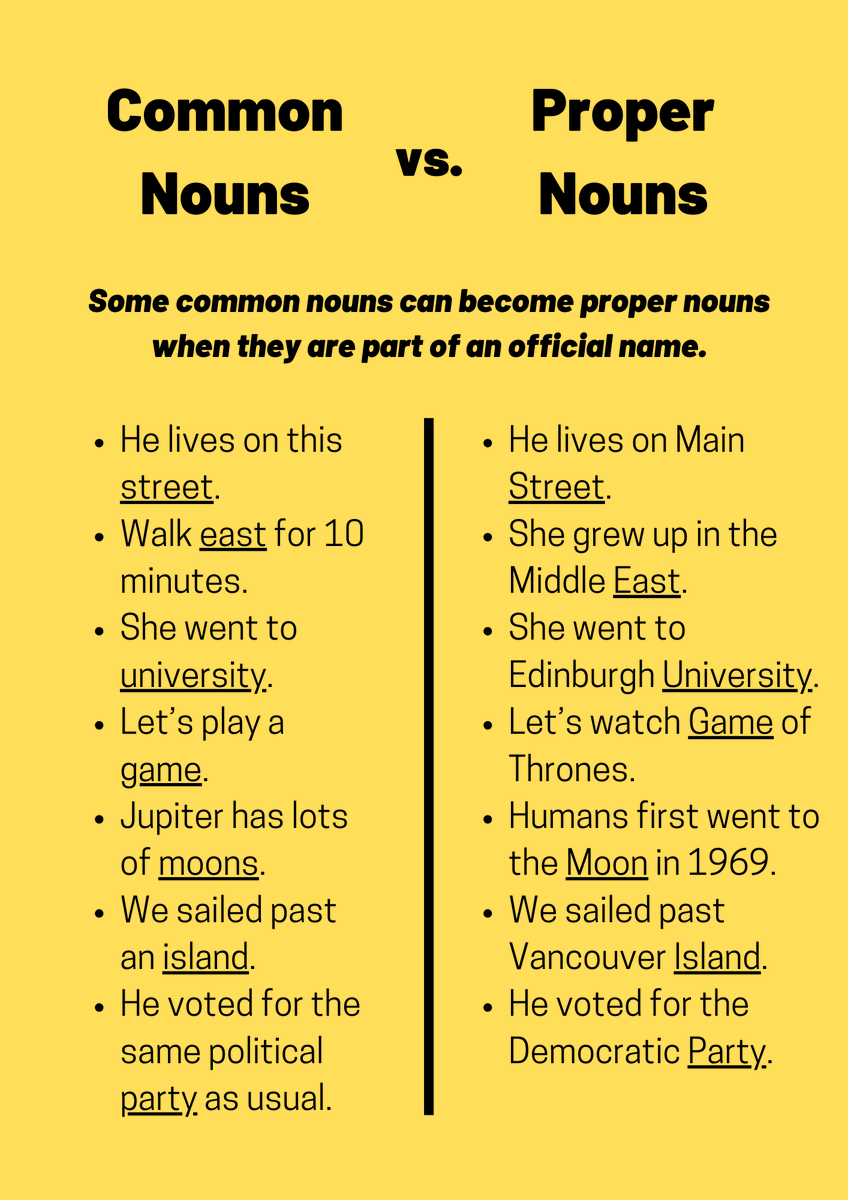When it comes to grammar, one of the fundamental concepts that students learn is the difference between common and proper nouns. Nouns are words used to identify people, places, things, or ideas, and they can be categorized into two main types: common and proper. Understanding the distinction between these two types of nouns is essential for clear and effective communication.
Common nouns are general names given to people, places, things, or ideas. They are not capitalized unless they appear at the beginning of a sentence. For example, “dog,” “city,” and “book” are all common nouns. These nouns are used to refer to any member of a class of people, places, or things rather than a specific individual.
Common vs Proper Noun
On the other hand, proper nouns are specific names given to individual people, places, things, or ideas. Proper nouns are always capitalized, regardless of where they appear in a sentence. For example, “Rover” (the name of a specific dog), “New York City” (the name of a specific city), and “Harry Potter” (the name of a specific book character) are all proper nouns. These nouns are used to refer to a particular person, place, thing, or idea.
One key difference between common and proper nouns is that common nouns can be preceded by articles such as “a,” “an,” or “the,” while proper nouns typically do not use articles. For example, you would say “I saw a dog in the park” (common noun) but “I saw Rover in the park” (proper noun). Proper nouns are used to give specific identities to the nouns they represent.
It is important to remember that proper nouns can sometimes become common nouns when they are used generically. For example, “kleenex” (a brand name) has become a common noun for facial tissues, and “google” (a company name) has become a common verb for searching online. In these cases, the proper nouns have taken on a more general meaning.
In conclusion, understanding the difference between common and proper nouns is crucial for effective communication in writing and speaking. While common nouns refer to general names for people, places, things, or ideas, proper nouns specify unique individuals or entities. By using these types of nouns correctly, you can enhance the clarity and precision of your language.
